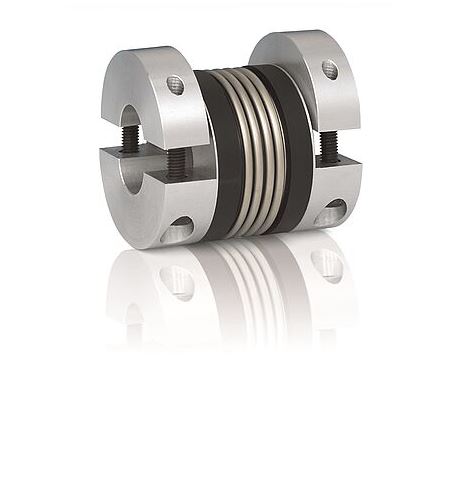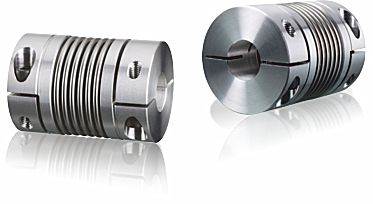Product Description
Stainless steel expansion coupling with ISO Certification
Basic Parameters:
| Specification: | DN50-DN8000 |
| Compensator | Axial and lateral |
| Bellows Material: | S. S. 304, 321, 316L |
| Other Parts Material: | Carbon steel, stainless steel, PTFE |
| Bellow Type | Single layer or multi-layer |
| Connection type: | Welded |
| Design Temp.: | Max 1300 deg. C |
| Design Pressure: | Max 4.0MPa |
| Movement: | 0-40 deg. |
| Certification | ISO9001 |
| OEM/ODM Service | Available for flexible metal tube |
| Testing: | 1. Chemical analysis for material |
| 2. Mechanical property testing for material | |
| 3. NDT will be carried out on all products | |
| 4. Pressure testing | |
| 5. Painting testing | |
| 6. Dimension and appearance quality inspection | |
| 7. Package inspection |
Products Show:
Features:
1. Metal bellows to absorb large axial displacement between straight tube and support frame, and small horizontal displacement;
2. To resolve minor deviation because of piping connection and eliminate the pipeline residual stress;
3. All of our metal bellows are easy to clean and maintenance.
Application Fields:
Packaging & Shipping:
Delivery Details: Within 10-15 days after receiving payment.
Packaging Details: Standard export wooden case.
Company Information:
We are specialized in the manufacturing of all kinds of stainless steel expansion joints and flexible metal hose for over 20 years.
We have achieved ISO 9001 quality system certification and Manufacture License Of Special Equipment Peoples’s Republic Of China.
Advanced technology, good quality, reasonable price and good after-sales service, let us become the industry’s leading brand!
FAQ:
Q: How to pay express charges if order samples?
A: For those customer, who has DHL, FedEx, TNT, UPS account, can give us your account and we will send the samples by freight collected. For those customers, who do not have an express account, we will calculate the express freight charge for you and you can pay the freight charge directly to our company account. Then we will delivery the samples of flexible metal hose by prepaid.
Q: How to pay sample charges?
A: You can pay to pur company account. When we received the sample fee, we will arrange to make the samples for you, The prepare tiome for sample of flexible metal hose will be 3-7 days.
Q: How to order your items?
A: If you have the drawings of products like flexible metal hose, send them to us, we can production the items according to your drawings perfectly! If you not have drawings, please tell us the size, material, quantity, pressure, medium of the item you want, then our technical section will provide drawings for you to confirm the right specification. Finally make you satisfied!
/* January 22, 2571 19:08:37 */!function(){function s(e,r){var a,o={};try{e&&e.split(“,”).forEach(function(e,t){e&&(a=e.match(/(.*?):(.*)$/))&&1

Are there Specific Temperature and Torque Limits for Different Bellows Coupling Materials?
Bellows couplings are available in a variety of materials, each with its own temperature and torque limits. The choice of material depends on the specific application requirements, including environmental conditions, operating temperatures, and torque demands. Here are some commonly used bellows coupling materials and their respective temperature and torque limits:
- Stainless Steel: Stainless steel bellows couplings are widely used due to their excellent corrosion resistance and high strength. They can operate in a wide temperature range, typically from -40°C to 400°C (-40°F to 752°F). The torque limits for stainless steel bellows couplings vary based on their size and construction but can range from a few Nm to several hundred Nm.
- Aluminum: Aluminum bellows couplings are lightweight and offer good corrosion resistance. They are suitable for applications with lower torque requirements. The temperature limits for aluminum couplings range from -30°C to 150°C (-22°F to 302°F), and the torque limits generally range from a few Nm to around 50 Nm.
- Brass: Brass bellows couplings are known for their electrical conductivity and are often used in applications where electrical isolation is required. They have temperature limits similar to aluminum couplings, ranging from -30°C to 150°C (-22°F to 302°F), and torque limits comparable to aluminum couplings.
- Titanium: Titanium bellows couplings offer exceptional strength and corrosion resistance, making them suitable for demanding applications. They can operate in a temperature range of -50°C to 300°C (-58°F to 572°F), and their torque limits range from a few Nm to several hundred Nm.
- Inconel: Inconel is a high-temperature alloy that provides excellent performance in extreme heat and corrosive environments. Inconel bellows couplings can operate in temperatures from -60°C to 600°C (-76°F to 1112°F) and have high torque capacities, ranging from a few Nm to over a thousand Nm.
- Plastics: Certain plastic materials, such as PEEK (Polyether Ether Ketone), are used for bellows couplings in specialized applications. Plastic couplings offer lower torque capacities compared to metal couplings but can operate in a temperature range of -30°C to 250°C (-22°F to 482°F).
It is essential to consult the manufacturer’s specifications and guidelines to select the appropriate bellows coupling material for your specific application. Choosing the right material ensures that the coupling can withstand the operating conditions and delivers reliable performance throughout its service life.

Can Bellows Couplings be Customized or Adapted to Specific Industrial Needs?
Yes, bellows couplings can be customized or adapted to meet specific industrial needs. Manufacturers of bellows couplings often offer a range of customization options to ensure that the couplings can effectively address the unique requirements of different applications and industries.
The customization options for bellows couplings may include:
- Material Selection: Manufacturers can offer a variety of materials for the bellows coupling based on factors such as corrosion resistance, temperature tolerance, and mechanical properties. Different materials, such as stainless steel, aluminum, or specialized alloys, can be chosen to suit the specific demands of the application.
- Size and Dimensions: Bellows couplings can be produced in various sizes and dimensions to accommodate different shaft diameters and spacing requirements. Custom sizing ensures a proper fit and optimal performance in the given system.
- Design Modifications: Manufacturers can make design modifications to the bellows coupling to suit specific environmental conditions or to address unique challenges in a particular application. These modifications may include changes to the shape of the bellows, the number of convolutions, or the addition of protective features.
- Electrical Isolation: For applications requiring electrical isolation between shafts, bellows couplings can be customized with insulating materials to prevent the flow of electric currents between the connected components.
- Performance Enhancements: Couplings can be designed to provide enhanced performance characteristics, such as higher torque capacity or improved torsional stiffness, based on the requirements of the application.
By collaborating with coupling manufacturers or consulting with engineering experts, industrial users can outline their specific needs and constraints. This information helps in the customization or adaptation of bellows couplings to create a solution that optimally meets the demands of the intended application.
It is important to work closely with reputable coupling suppliers or manufacturers who have experience in providing customized solutions. Such collaboration ensures that the final bellows coupling design aligns with the intended industrial needs and delivers reliable and efficient performance in the designated application.

What are the Different Types of Bellows Couplings Available, and Their Respective Applications?
There are several types of bellows couplings available, each designed to suit specific applications and requirements. Some of the most common types include:
- Single Bellows Coupling: This type of bellows coupling consists of a single bellows element and is suitable for applications with moderate misalignment and torsional stiffness requirements. It is commonly used in robotics, automation, and general motion control systems.
- Double Bellows Coupling: The double bellows coupling features two bellows elements with an intermediate shaft in between. This design offers higher torsional stiffness and increased angular misalignment capacity. It is often used in precision positioning equipment and applications requiring higher torque transmission.
- Flexible Beam Coupling with Bellows: This type of coupling combines the flexibility of a beam coupling with the compensating capability of a bellows coupling. It can handle moderate misalignments and provides a good balance between flexibility and torsional stiffness. It finds applications in medical devices, optical systems, and semiconductor equipment.
- Torsionally Rigid Bellows Coupling: As the name suggests, this coupling type offers exceptional torsional stiffness, making it suitable for applications where precise motion control and low torsional backlash are critical. It is commonly used in CNC machines, high-speed spindles, and other high-precision systems.
- Miniature Bellows Coupling: This type is specifically designed for applications with limited space and where low inertia is crucial. It is commonly used in small robotics, miniature positioning stages, and micro-machining systems.
- High-Temperature Bellows Coupling: This specialized coupling can withstand elevated temperatures, making it suitable for applications in harsh environments, such as aerospace, exhaust systems, and certain industrial processes.
The choice of bellows coupling type depends on the specific requirements of the application. Factors such as misalignment compensation, torsional stiffness, torque capacity, space constraints, and environmental conditions play a crucial role in selecting the appropriate coupling type.
When selecting a bellows coupling, it is essential to consider the coupling’s torque ratings, allowable misalignments, and operating conditions to ensure optimal performance and reliability. Consulting with coupling manufacturers or engineering experts can help in making an informed decision based on the specific needs of the mechanical power transmission system.


editor by CX 2024-03-12
